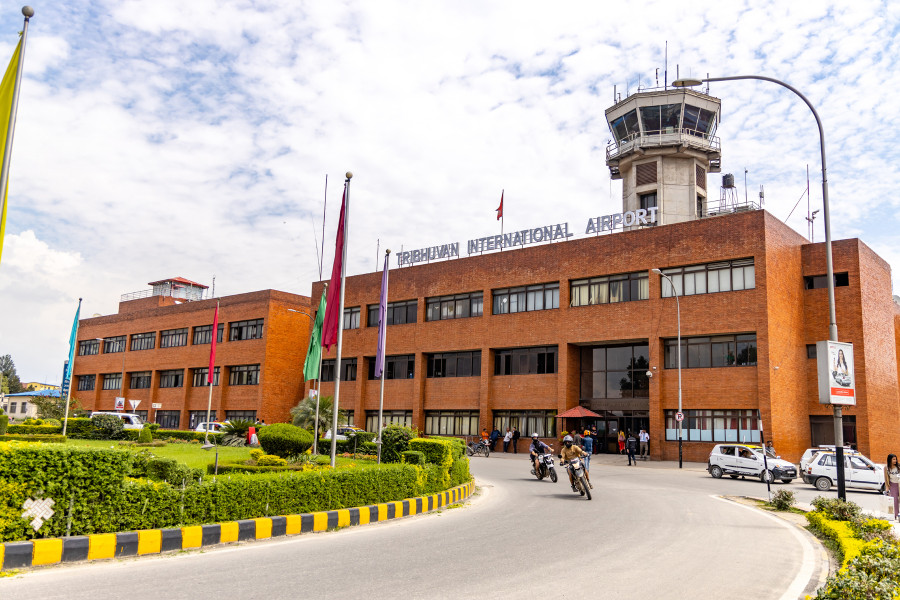Even as coronavirus cases rise, Kathmandu airport has not implemented mandatory screenings

source: the kathmandu post
At a time when many Asian countries have stepped up measures at the international ports of entry to prevent the possible transmission of a new strain of coronavirus, health screening of passengers at the Tribhuvan International Airport, the only international airport in the country, remains voluntary.
A health desk at the airport has simply placed a signboard that urges passengers to contact personnel if they have a fever or other health complications.
“We provide a form to those air passengers who contact us about any kind of health complications,” Dr Nishant Thakur, who has been deployed at the Tribhuvan International Airport health desk, told the Post. “No one has contacted us so far.”
Since the new strain of coronavirus was first detected in the Chinese city of Wuhan, Singapore, Thailand, Japan and South Korea, among other Asian countries, have introduced mandatory screening at airports, especially for arrivals from Wuhan and other major Chinese cities. Chinese health authorities are even conducting individual temperature checks on passengers.
The Chinese authorities on Tuesday confirmed that at least six people have died and over 290 had been infected with the deadly virus. Two people were infected through human-to-human transmission.
According to the BBC, the World Health Organisation is calling a rare emergency meeting and is likely to declare an international public health emergency. In the past, the UN health agency had declared a similar international public health emergency over Swine flu and Ebola outbreaks.
The Wuhan municipal health commission reported that 15 medical workers in the city had been infected with the coronavirus virus, with one in critical condition. Infections have also been reported in Taiwan, South Korea, Thailand and Japan.
But in Nepal, health authorities at the airport do not appear to be taking the threat of the virus too serious, despite the fact that the country is at high risk of transmission, as the inflow of Chinese tourists is high. More than 169,000 Chinese tourists visited Nepal in 2009. The country aims to attract two million tourists in 2020 including 350,000 Chinese tourists.
There are also thousands of Nepalis living and working in China. On January 13, a Nepali man returning from Wuhan was quarantined at the Sukraraj Tropical and Infectious Disease Hospital after being suspected of being infected with the coronavirus. The man was released after five days of treatment, but doctors at the hospital remain unsure if he carried the virus.
Filling out the health form at the airport is voluntary, as the Health Ministry has not made the screening mandatory, according to Thakur. He conceded that passengers with fever or other health complications can easily skip the screening because there is no thermal screening system.
The Epidemiology and Disease Control Division, under the Department of Health Services, is responsible for taking preventive measures to contain the spread of the deadly virus. Officials at the division told the Post that they are in constant touch with the World Health Organization’s country office in Nepal.
“WHO has not asked its member countries to conduct a mandatory screening,” said Dr Bibek Kumar Lal, the division’s director. “Some countries have been screening all passengers and planes while some are only screening passengers who arrived from Wuhan.”
The Health Ministry had deputed a doctor, two paramedics and two staff nurses at the airport’s health desk last week after the UN health agency alerted all member countries, including Nepal, about the possible spread of the virus.
Lal said that his office did not have information about the number of passengers coming in from Wuhan and other cities where cases have been reported.
A team of health workers, led by Lal, visited the airport health desk on Tuesday to study the possibility of setting up a thermal scanner.
“Thermal scanners only show the actual temperature of the body if it is set up in an air-conditioned room,” said Lal. “We do not have such an air-conditioned room at the airport and the airport authority did not let us set up such a room citing security reasons.”
The airport once had thermal scanners at the airport but, according to doctors, they were largely ineffective since they were placed in a corridor with no air-conditioning. In such spaces, thermal scanners are unable to accurately reflect the temperature of the body.
Lal, however, said that his office is ready to follow any direction from the UN health agency to protect people from the virus.